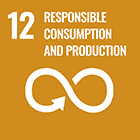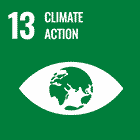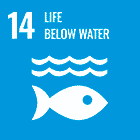Let’s keep in touch!
The latest news of the Metis Fund, delivered straight to your inbox!
PVC pipe trombones, drum-barrels: Kan Chan Kin invites people to transform plastic waste into musical instruments. The art of playing with waste, for a melodious resilience.



Trash to music
The coastal and marine ecosystems of Mauritius hold exceptional biodiversity. Its coral reefs are home to nearly 200 species of corals out of the 800 identified worldwide. Its scenic and natural attractions are a major draw for tourism and a significant socio-economic asset for the island.
However, while Mauritius is one of the richest areas on the planet in terms of biodiversity, it is also one of the most threatened. Among the factors contributing to ecosystem and biodiversity degradation is plastic pollution – which also affects human health, the climate, and has a direct impact on the country’s tourism industry and economy.
of plastic waste is recycled in Mauritius
people engaged in reducing waste
Kan Chan Kin is a young Mauritian artist, musician, and activist who identifies as an “artivist.” In partnership with Metis, over several weeks, Kan Chan Kin worked with residents of the Beau-Bassin community to collect and sort various types of waste: plastic bags, fishing nets, tarps, ropes, and more. After meticulous cleaning and transformation, they crafted and tuned about a dozen wind, string, and percussion instruments. These include a trombone made from PVC pipes and a drum made from barrels and plastic bottles: “If you take the time to think about it, there are many objects that can be transformed into musical instruments.”
These instruments were showcased during an exhibition at the Caudan Arts Centre in Saint-Louis, where visitors were introduced to a concrete alternative to waste management, demonstrating how waste can be a resource. Kan then composed pieces for these instruments and performed them during concerts. Metis invited various tourism stakeholders from the island to visit Kan’s workshop and attend his concerts; the emotions they experienced during these encounters could lead them to change their practices to reduce the amount of waste generated by their sector.
This project is one of three addressing plastic waste issues, conducted in India, Indonesia, and Mauritius. The artists involved in all three projects exchanged ideas and shared their experiences.